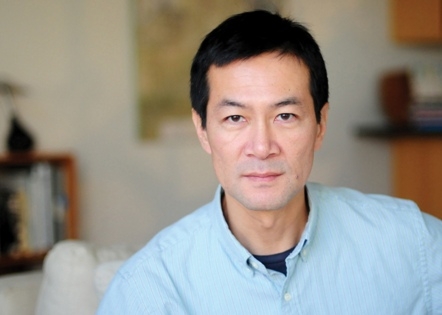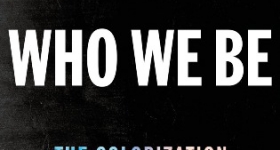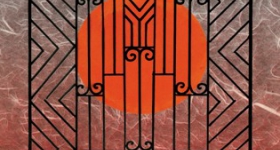Don
Lee’s latest novel, The Collective,
centers around three Asian American friends who meet during their college
years and eventually go on to create an Asian American artistic collective in
Boston. The narrator, Eric Cho, is a third generation Korean American who moves
to the Midwest for college because he “had felt lost, merely another Asian
American among the multitudes” in Southern California. He lacks any real
association with his Korean heritage -- he cannot speak or understand Korean --
and only self-identifies as Asian American because of his appearance. While at
college, he befriends Joshua Yoon, who becomes Eric’s id and Lee’s mouthpiece
for espousing various rants against Asian stereotypes. Joshua is brash,
hypersexual, loud, and at times grating. Unlike Eric, he readily embraces his
Korean background despite being adopted by a Caucasian couple. The other main
character is Jessica Tsai, a Taiwanese American artist who rejects her
traditional parents and who identifies more with being a lesbian rather than
being interested in Asian American issues.
The relationship between these three
characters becomes the main thrust of the novel, and the means by which Lee
explores the capability of friends to both support and destroy each other.
Eric’s initial resistance to identify as Asian American makes him the unwitting
target for Joshua’s verbal abuse about ignoring the negative effect of Asian
stereotypes. At one point in the novel, Eric refers to Joshua as a “liar, a
narcissist, a naysayer, a bully, and a misogynist,” yet he spends most of the
novel under Joshua’s thrall. It’s a testament to Lee’s engaging prose and
characterization that a character such as Joshua remains interesting and
somehow likable despite his brutal nature. Likewise, Eric, as a stand in for
the type of Asian American male that Joshua refers to as “the eunuchs of the
world,” precariously exists between being a pathetic and endearing character. Though
I gnashed my teeth several times while reading passages about Eric’s desire to
be with Caucasian women, I still saw myself and countless other Asian American
males in him. In Joshua, I saw the brave, outspoken, anti-racist Asian American
male that is never portrayed in broader media.

Photo of the author by Melissa Frost
While Lee does a marvelous job in
crafting and creating the characters of Eric and Joshua, he falls a bit short
with Jessica. Though she is one of the central characters of the novel, she
lacks a clear sense of purpose; that is, perhaps, by design, as Jessica wanders
in and out of the narrative after rejecting the path her parents created for
her. Outside of her sexuality, Jessica is constantly looking for an identity.
Like Eric, she represents herself as Asian American only when she needs to, as
when she finds herself embroiled in a battle over artistic censorship later in
the novel. It is probably not a coincidence that this sequence is one of the
weaker parts of the novel. Her opponent in her censorship battle is a comically
“white” and racist Bostonian, a character meant to be caricature, for sure, but
his misdeeds are a bit too grandiose and mean spirited to come off as
realistic. Instead, the character comes off like a villain in a comic book, and
his verbal abuse towards Jessica only spurs Joshua and Eric to come to her
rescue rather than allowing her to have a moment to claim a racial or gender
based identity.
Still, the novel at its core is
still a character and dialogue driven piece, and the dialogue is smart and well
written. Eric’s narration, like the character itself, finds itself bordering
two worlds: the casual style in which friends speak to each other, and the more
distinguished language of an aspiring writer trying to find his own voice.
Joshua’s dialogue comes off brash, angry, and feisty. Jessica’s dialogue lacks
distinction, which is in line with her broader characterization. When the
characters speak to -- and hurt -- each other, it is all the more impactful
because they are realistically drawn and believable. And that, in turn, makes
the novel a truly engrossing read.
As
the characters grow older and drift away from each other Lee has Eric deliver
this missive: “Inevitably, you begin to identify your old friends with what
you’re trying to discard; you associate them with the wreckage.” For Eric, and
for Lee, friendships are both necessary and harmful; they both define our
personalities and detract from them. Lee’s exploration of every aspect of this
dynamic makes for a compelling work of literature.
Noah Cho teaches English at Marin Country Day
School in Corte Madera, California.










Comments